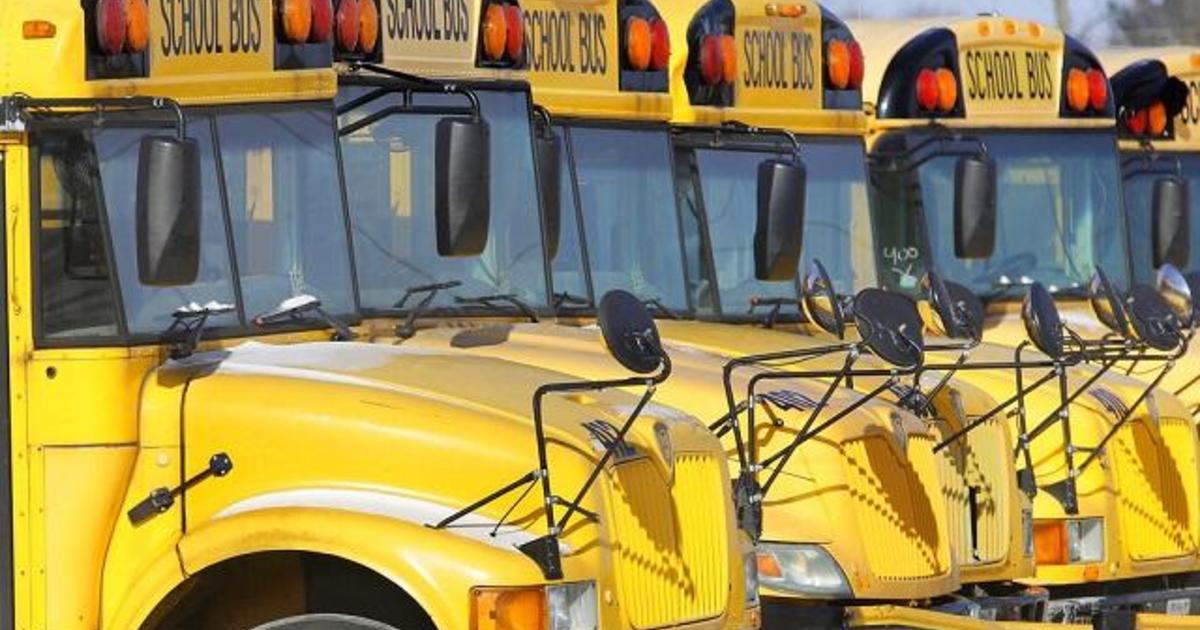Big Ticket Items Still On Md. Assembly's Plate
ANNAPOLIS, Md. (AP) -- Maryland lawmakers are rushing to approve bills on everything from hot-button social issues to the budget before they leave town in less than two weeks.
The General Assembly is close to adopting its most important measure — a $34 billion spending plan to pay for education, health care and roads.
But most of Gov. Martin O'Malley's top priorities — including measures to establish a $100 million venture fund and to mandate that utilities buy offshore wind energy — have yet to clear their respective committees.
Those and measures to place a new tax on alcohol sales and to extend in-state college tuition rates to the children of illegal immigrants are still locked in the House Ways and Means committee.
"There's a lot of big stuff that's still in our committee," said Delegate Frank Turner, D-Howard.
A group of African-American clergy waded in the lobby between the House and Senate chambers Tuesday morning, with hopes of dislodging the immigrant tuition bill from Turner's committee.
A watered-down version of the measure — which would have students attend community college before being considered for in-state status at Maryland's four-year universities — helped the measure clear the Senate, but supporters were uncertain if the compromise would be enough to guarantee success in the House.
"We're going to keep pushing," said Bishop Douglas Miles, of Baltimore's Koinonia Baptist Church.
A proposal to legalize same-sex marriage in Maryland appeared on its way to quick passage earlier this month, but was derailed in the House when supporters could not secure the 71 votes needed for passage.
A related measure to grant better protections to transgendered Marylanders passed the House during a rare weekend meeting, but died in the Senate when Senate President Thomas V. Mike Miller, D-Calvert, blocked it from coming to a vote.
Lawmakers passed the nominal deadline Monday for bills to be approved by one chamber and considered by the other without facing procedural roadblocks. But high-profile measures, such as the governor's, can still be fast-tracked in the waning days of the session with approval from the Assembly's leaders.
O'Malley's lobbying team has been working to address concerns about the governor's agenda before lawmakers leave town April 11, trying to align House and Senate proposals, said Joseph Bryce, the governor's chief lobbyist.
"We've been trying to get everybody on the same page, because with less than two weeks left you need to have them be as close as possible to one another, so we've spent a lot of time behind the scenes on that, answering questions," Bryce said Tuesday.
Concerns about the costs to Maryland ratepayers of the governor's wind bill have stalled action by lawmakers, although an initial vote by a key House panel could come as soon as Monday, said House Economic Matters Committee Chairman Dereck Davis, D-Prince George's.
Davis said he's not surprised by the pace, given that members just emerged from elections last fall.
"The first year of a term, it's been my experience things tend to move a little slower because you have a lot of freshmen and people are sort of recovering from the election. They haven't spent say the whole interim working on bills and issues, they've been campaigning," Davis said. "So the first year is always a little slower."
Broad, sweeping measures affecting hundreds of thousands of Marylanders — including the state plan to implement federal healthcare reform and proposed cuts to state workers' pensions and other retirement benefits — appear likely to make the cut.
Bills that miss the 90-day cutoff either die or can be sent to legislative purgatory: the summer study.
House Environmental Matters Committee Chairwoman Maggie McIntosh told O'Malley weeks ago that his plan to crack down on septic-system pollution would have to wait for a study. Senate Finance Committee Chairman Thomas "Mac" Middleton, D-Charles, meanwhile floated the possibility of studying the governor's wind bill over the summer.
Senators looking to ease up on medical marijuana users passed a measure to allow them to present a doctor's note as a defense in court. The House would rather study the issue.
Miller preempted the process by seeking a study on the possible merging of the University of Maryland, College Park and the University of Maryland, Baltimore now before suggesting any changes.
Lawmakers wrangling with a series of hot-button bills on illegal immigration in 2008 chose to study the issue rather than vote on any definitive measure. This session they asked for an additional year to study the issue.
Proposals which have moved include narrower, more targeted bills.
A measure to legalize direct shipment of wine to connoisseurs — which fell under the weight of Maryland's alcohol lobby three years in a row — now appears headed for the governor's desk, albeit trimmed back to only allow for shipping from wineries.
And a proposal to let dogs hang outdoors while their owners dine at restaurants easily cleared the House and is scheduled for a Senate hearing April 5.
House Minority Leader Anthony O'Donnell, R-Calvert, commented: "A week and a half before the session ends, it's hard to characterize the session because a lot of things are still in the balance."
(Copyright 2011 by The Associated Press. All Rights Reserved.)



